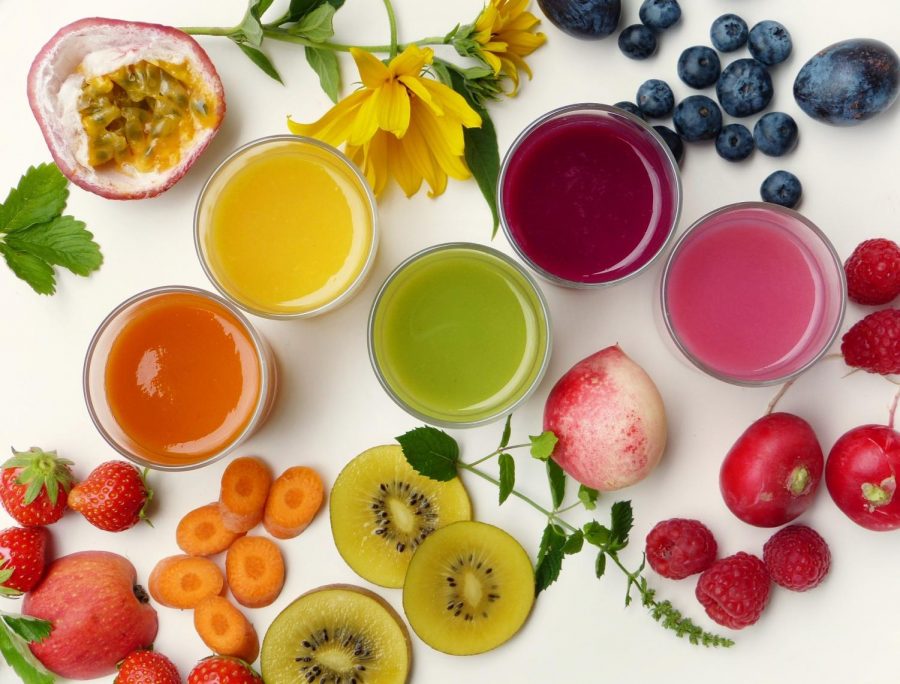How Bacteria Helps Fight COVID
The Gut-Immune Connection
March 31, 2021
“Did you wash your hands?” You’ve probably heard this being asked more times than you can count in the past year. Don’t worry, I won’t add on. While we’ve all been more cautious in protecting our health, society often overlooks the systems in the human body whose purpose is to protect us, and how we can support them and their functions. In particular, the fact that 70-80% of our immune system lives in the gut. The gut (small and large intestine) is a collection of roughly 100 trillion microbes. The gut microbiome refers to the colonies of microbes (composed of bacteria, fungi, and viruses) present there. We want the gut to be rich with healthy bacteria so that it can positively contribute to our immune system.
Why is gut health so important? Mostly because of the GALT (also known as gut-associated lymphoid tissue) that acts as a headquarters for immune cells. The bacteria in the GALT are the good gut bacteria that helps communicate to our immune system whether something in our body is foreign or welcome. When we eat foods high in sugar, trans fat, and refined carbohydrates, our immune system causes inflammation as a response to fight/rid the body of things that are harmful. Chronic inflammation results when we constantly eat processed foods, because the gut keeps activating the immune system “army” to check out the foods we’re ingesting, which means our immune system lingers in the active stage. We want our immune system to be ready, but not always active, because chronic (constant) inflammation will impair our immune system’s ability to properly activate inflammation when something like a virus (COVID-19) enters our body. Take care of your gut so that it can “promote a strong immune system and lower levels of chronic inflammation,” says Carrie Dennett, RD.
In supporting a healthy gut microbiome, focus on eating a fiber rich, plant-based diet. Why? All plant-based foods, such as vegetables, fruits, whole grains, and legumes, have prebiotics, which is fiber that is “literally the food for the gut bacteria that helps your immune system,” explains Amy Shah, M.D.
Probiotics is the “good” gut bacteria that helps to communicate with your immune system, and their food is the prebiotics that come from eating plant-based foods. Only they “have the chops to break down the prebiotics” (Gail Cresci, PhD, Rd) into the essential nutrients that are vital for our body to function.
Next time, consider adding a handful of spinach to your smoothie, stew, or soup. When you’re ordering take-out, order a side salad along with the pizza or pasta. If you’re not used to eating a lot of fiber, then start by making small changes. Your gut is like a muscle, and you can use fiber to train it. “There’s a sweet spot that your gut can tolerate,” says Dr. Will Bulsiewicz. He recommends finding what that is, and over time, the gut will be able to handle more fiber that it is given. In addition, add fermented foods like kimchi and sauerkraut as a side dish to a meal, or have yogurt with berries and a drizzle of honey as a snack. It’s important to replenish probiotics as they help to support a healthy gut.
There are numerous factors that affect our gut health, like getting enough sleep (6-9 hours), managing stress levels, and moving our body. Oftentimes, improving one aspect of our health, like nutrition, can act as a catalyst for making improvements in other areas of our health. Start slow, with changes that can last long-term, and become part of a lifestyle. Our gut and immune health is interlinked, so remember to take care of your body for yourself and the 100 trillion bacteria that call your gut home, who will in return, give your immune system a leg up—something we all could use right now.






